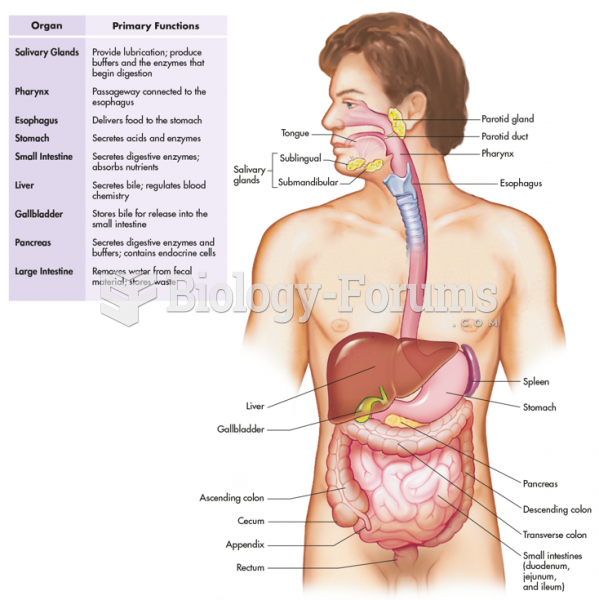|
|
|
To maintain good kidney function, you should drink at least 3 quarts of water daily. Water dilutes urine and helps prevent concentrations of salts and minerals that can lead to kidney stone formation. Chronic dehydration is a major contributor to the development of kidney stones.
Women are 50% to 75% more likely than men to experience an adverse drug reaction.
The largest baby ever born weighed more than 23 pounds but died just 11 hours after his birth in 1879. The largest surviving baby was born in October 2009 in Sumatra, Indonesia, and weighed an astounding 19.2 pounds at birth.
Medication errors are more common among seriously ill patients than with those with minor conditions.
About 100 new prescription or over-the-counter drugs come into the U.S. market every year.







